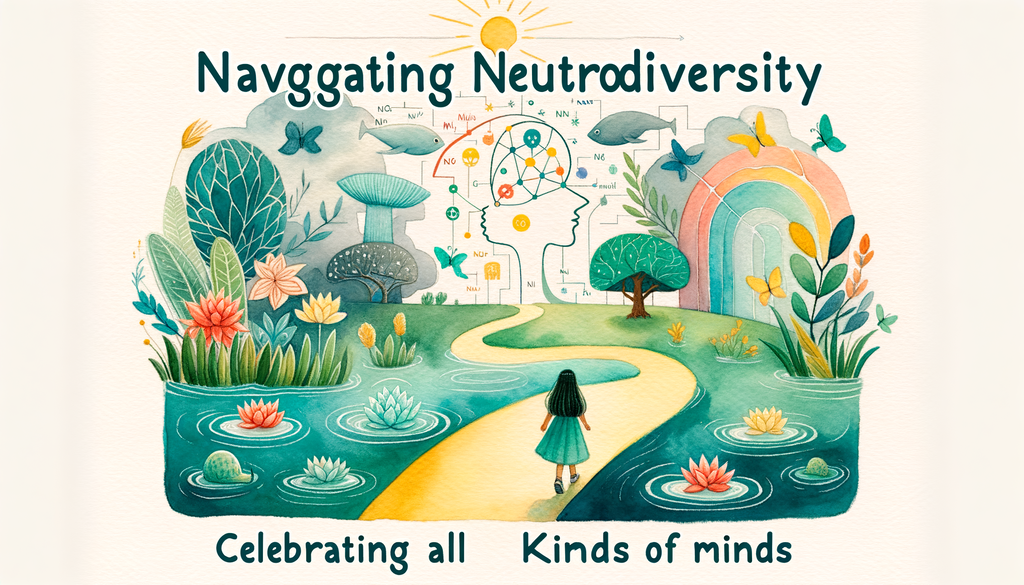Navigating Neurodiversity: Celebrating All Kinds of Minds

Each child possesses a distinct set of cognitive abilities and characteristics that make their mind unique. This spectrum of abilities and traits is what we call “neurodiversity”. Our goal as parents, educators, and caregivers is to nurture and celebrate all kinds of minds within the educational system, fostering an inclusive environment where every child can thrive.
Understanding Neurodiversity
Neurodiversity is a concept which views neurological variations (like autism, ADHD, dyslexia, among others) as simply part of human diversity. Instead of categorizing these variations as deficits or disorders, neurodiversity recognizes and values them as different ways of being and offers an alternate perspective to the traditional medical model of disabilities.
This inclusive approach opens up avenues for recognizing potential strengths and unique abilities that may otherwise be overlooked. Learn more about how to understand and celebrate neurodiversity in our post on The Value of Peer Mentorship for 2e Students.
Cultivating Inclusive Spaces
Creating an inclusive educational environment entails recognizing these diverse learning styles and individual needs. It involves intentional efforts to eliminate barriers and to provide appropriate accommodations for students with special needs. You can discover more about this in our article on Championing Inclusivity: Accessibility in Extracurriculars.
Supporting Special Needs Learners
Tools and strategies for helping special needs children thrive in various environments exist in abundance today. For instance, check our comprehensive review on the Advantages of Assistive Technology Tools for Special Education, showcasing technology’s role in empowering our diverse learners.
Recognizing Giftedness
Gifted learners, with their exceptional talents, also thrive when individualized attention and opportunities are provided. Whether that’s Enrichment Programs for the Gifted Learner or Finding Available Scholarships and Financial Aid for Gifted Education, it’s important to advocate for their unique needs too.
Advocating for Children’s Rights in Education
Understanding our children’s educational rights is crucial. Become more familiar with the IEP process and its importance in our guide, Your Child’s Rights: Understanding the IEP Process. Such knowledge is power, ensuring you’re equipped to secure the best possible support for your child.
In conclusion, understanding neurodiversity allows us to celebrate this diversity rather than stigmatize it. By cultivating inclusive spaces, supporting learners of all kinds and advocating for our children’s rights, we are shaping an educational landscape where all minds can flourish.
Further Reading: